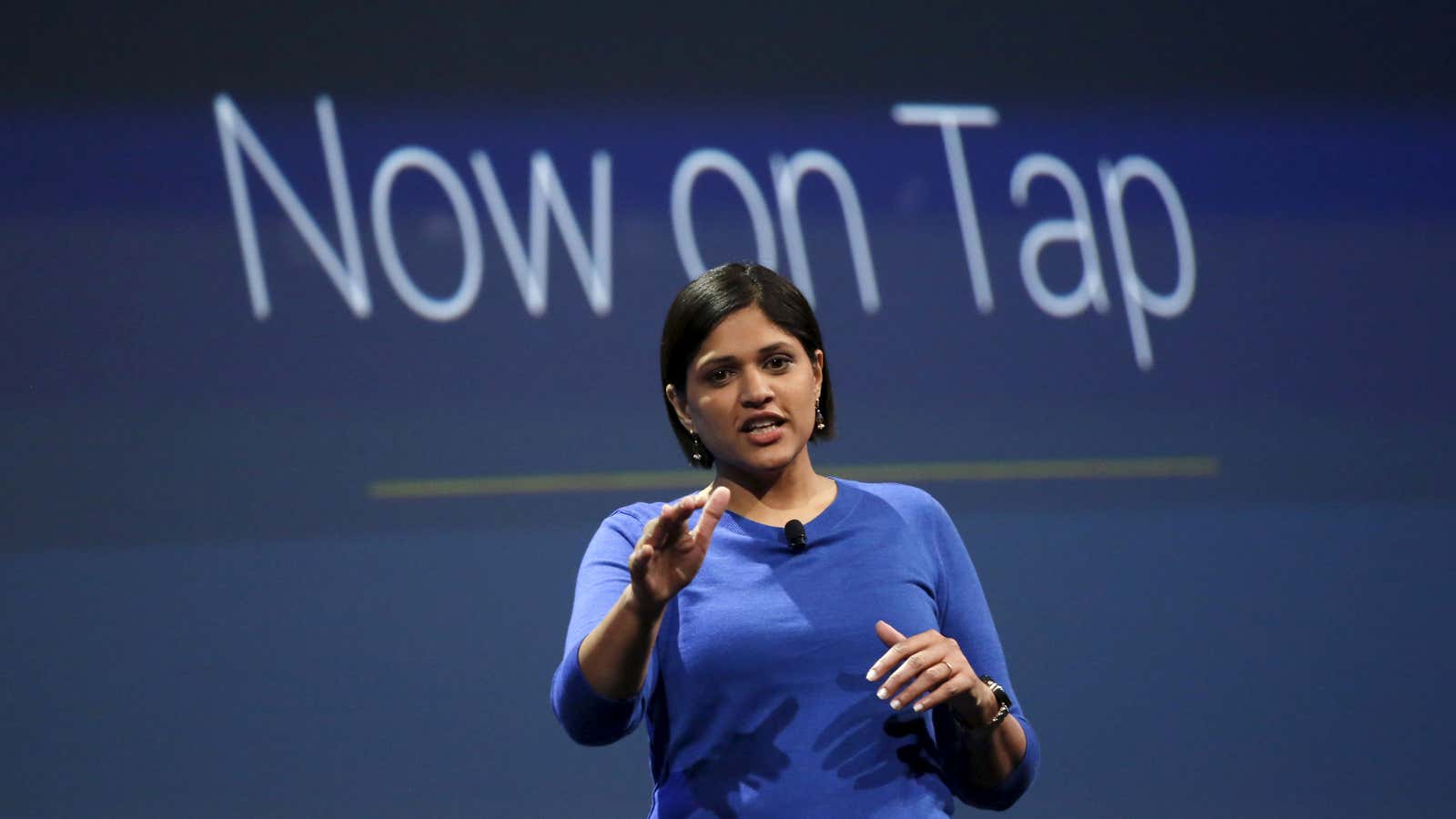One of the questions as mobile internet usage started to grow was whether the advertising revenue from Google’s search business was about to take a nosedive. What if people didn’t search on their phones the way they do on their desktop PCs? What if they spent all their time in apps? What if they didn’t click on the ads?
So far, so good, actually. Google’s core advertising business, which it reports as its “Google Websites” segment, continues to grow at a steady pace. This includes YouTube, which is growing rapidly. But it’s mostly Google search.
In its second-quarter earnings report disclosed this week, Google reported $12.4 billion in revenue from the Google Websites segment, up $1.5 billion from the same quarter last year. That’s not an acceleration, but it’s not much of a deceleration, either; since the beginning of 2011, Google’s year-over-year growth in that business line has averaged about $1.6 billion per quarter.
So what’s so great about maintaining an average growth rate? In this case, it’s that the smartphone revolution—the one that’s supposed to have disturbed Google’s search business—has already largely taken place.
“Those who claim that mobile is detrimental to search for one reason or another, seem to forget that mobile has, by and large, ‘happened,'” Sanford Bernstein analyst Carlos Kirjner writes in a research report.
That is, if mobile really was going to squeeze Google’s search advertising business, we probably would have already seen it start by now. Smartphone penetration keeps deepening—with 75% saturation in the US market, according to comScore. And for many top media properties, half of the total audience only visits on mobile, according to a recent comScore report on mobile media consumption.
While Google’s mobile usage is already very large, some things that could potentially compete with—or help with—search are still relatively new. Deep linking between apps and the web, for example, is just getting started. Apple’s iOS search deal with Google is reportedly up for renewal soon, just as Apple introduces new, non-Google search features in its forthcoming iOS 9 release. Future forms of search, including predictive information services such as Google Now, are also just getting started.
“We think that Google Now is as mature as Google Search was in the early 2000s,” Kirjner writes. “Google Now, and Photos, and Maps, and Deep Linking, and the changing way in which the mobile Web and mobile apps co-exist, and the Knowledge Graph, and Google’s transition from a search company providing 10 blue links into a Knowledge company providing answers, are all still in their early days. This is just the beginning.”
His thesis, then, is that Google search will, “at worst, decelerate gradually.”
Meanwhile, Google remains focused on efforts to “close the gap between mobile and desktop search monetization,” as new CFO Ruth Porat put it this week on the company’s earnings call. On that front, she says, the company has continued to make progress.
